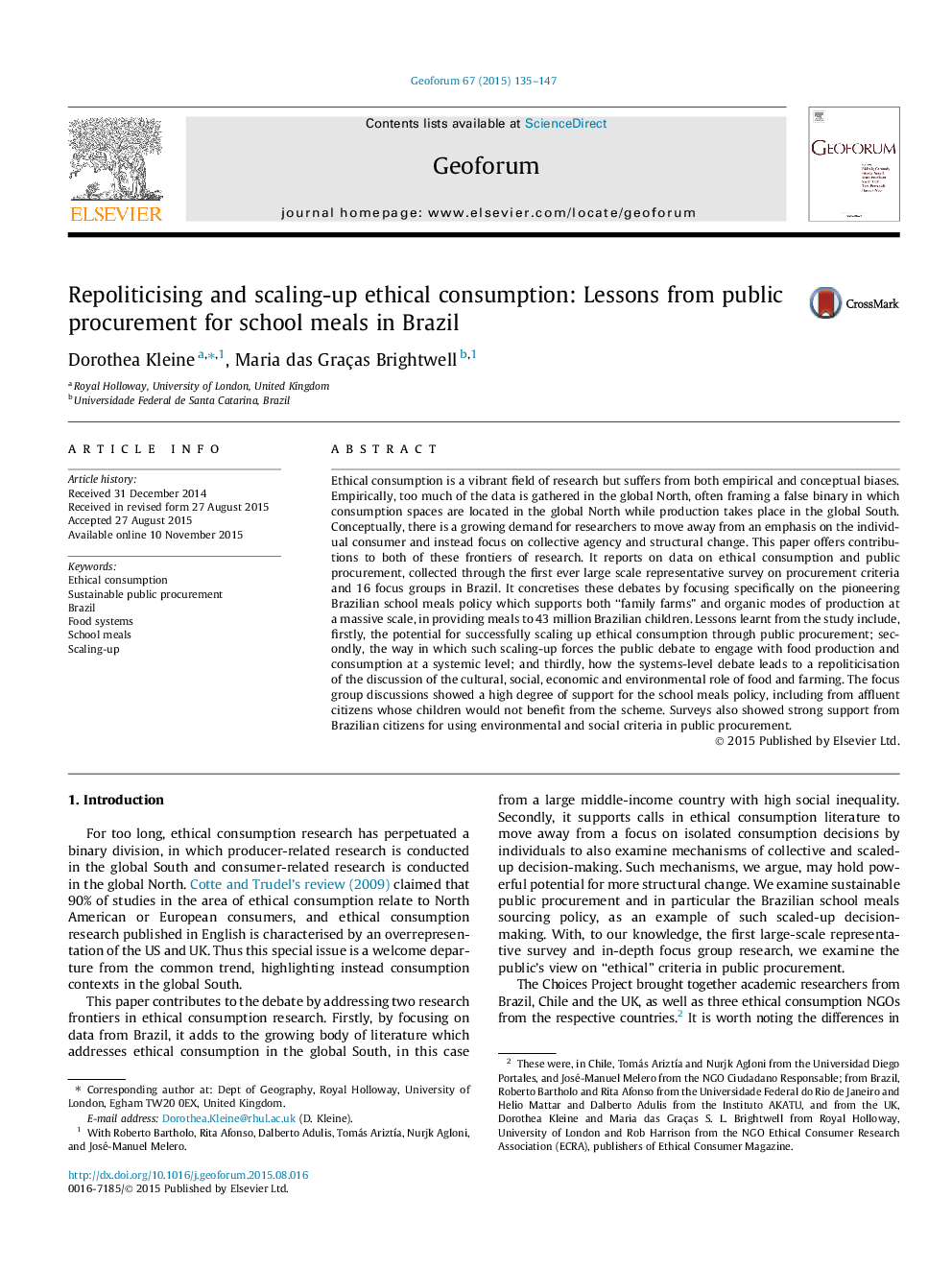| کد مقاله | کد نشریه | سال انتشار | مقاله انگلیسی | نسخه تمام متن |
|---|---|---|---|---|
| 5073750 | 1477122 | 2015 | 13 صفحه PDF | دانلود رایگان |
- We conducted focus groups and a large scale representative survey in Brazil.
- We analyse public procurement as a form of collective ethical consumption choice.
- Brazil's school meals policy reaches 43Â m children and supports “family farms”.
- Results show public support social & environmental criteria in public procurement.
- Discussion led to public debate on sustainable food systems and role of the state.
Ethical consumption is a vibrant field of research but suffers from both empirical and conceptual biases. Empirically, too much of the data is gathered in the global North, often framing a false binary in which consumption spaces are located in the global North while production takes place in the global South. Conceptually, there is a growing demand for researchers to move away from an emphasis on the individual consumer and instead focus on collective agency and structural change. This paper offers contributions to both of these frontiers of research. It reports on data on ethical consumption and public procurement, collected through the first ever large scale representative survey on procurement criteria and 16 focus groups in Brazil. It concretises these debates by focusing specifically on the pioneering Brazilian school meals policy which supports both “family farms” and organic modes of production at a massive scale, in providing meals to 43Â million Brazilian children. Lessons learnt from the study include, firstly, the potential for successfully scaling up ethical consumption through public procurement; secondly, the way in which such scaling-up forces the public debate to engage with food production and consumption at a systemic level; and thirdly, how the systems-level debate leads to a repoliticisation of the discussion of the cultural, social, economic and environmental role of food and farming. The focus group discussions showed a high degree of support for the school meals policy, including from affluent citizens whose children would not benefit from the scheme. Surveys also showed strong support from Brazilian citizens for using environmental and social criteria in public procurement.
Journal: Geoforum - Volume 67, December 2015, Pages 135-147
